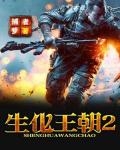Chapter 246 The magnificent task force arrives in loyal Ceylon
at the same time.
Entering Ceylon in January of 22 years.
This year we got a brand new start.
The USS Luzon amphibious assault ship, along with other warships and supply ships, appeared in the North Port of Colombo Port in a mighty manner.
Almost at the same time.
An aviation division and a field division sent by Hongsavadi also arrived in Jaffna, the capital of the Northern Province of Ceylon.
The Ceylon Army, which had been secretly prepared long ago, quickly responded to the Luzon Navy, Hongsawadi Air Force and Army, and began to reorganize Ceylon's navy, army and air force system based on this.
India, which was originally the most likely country to intervene in the changes in Ceylon, was caught up in the Assam War and in a full-scale confrontation with West Pakistan in the west. It had no energy to intervene in Ceylon.
America is also unable to extricate itself because of the oak in Latin America and the strategy of suppressing a certain Eastern power.
As for other forces, they have even less presence in the Ceylon Ocean.
However, America's son, Australia, has been making its own comments recently, pointing fingers at Ceylon and Aoba Group.
This mad dog that couldn't see its own position clearly obviously didn't know that it had committed a crime that would lead to its own death. The Homo Sapiens Company had already made a note of it in its little notebook.
Major General Hu Zhengyue, commander of the task force, and Major General Matugemo, the newly appointed head of the Ceylon Navy, spoke a lot of polite words to the Ceylon TV station at the North Port Pier in Colombo.
Then the two of them headed to Negombo Port on the north side of Colombo.
In the future, Negombo Port will be built into a professional military port.
At the same time, the Fourth Fleet of the Ceylon Ocean, affiliated to the Homo Sapiens Company, was formed, and together with the Third Fleet of the Ceylon Ocean stationed in the Tuva Port in Hongsavadi, they jointly defended and deterred the entire Ceylon Ocean periphery.
…
Colombo 's financial building just overlooks the North Port.
Horton put down the telescope in his hand, his expression very gloomy: "Asshole!"
Sunny and John, who were also in the office, looked unhappy. After all, this time the Wall Street financial group lost tens of billions of US dollars on Ceylon's sovereign foreign debt. For them, the regional heads, this was definitely not a good thing.
"What now?" John asked with a headache.
Sunny thought for a while and said, "Manila Bank is still buying Ceylon sovereign bonds, but the price is only about 8.2% of the previous price. If we sell them at this price, our losses will be too severe."
"Can Ceylon's assets in North America and Europe be enforced?" John inquired.
Holden shook his head. "I have investigated and found that the three major families do have a lot of assets in Europe and North America, but these are not official assets of Ceylon. Now, among the three major families, except for the Solomon family, the others are exiled forces. Their assets will belong to us sooner or later. There is no need to freeze them directly now."
Although the Wall Street financial group has already taken the international assets of the three major families into its pocket, it must be careful about how it behaves. If it freezes these assets directly, who would be willing to transfer the assets to Europe and the United States in the future?
Moreover, the Wall Street financial group also planned to find opportunities to take advantage of these families in the future. Now that they have swallowed up these families' international assets, Ceylon and Aoba Group will probably be even happier.
What's more, with the means of Wall Street financial groups, they can use more reasonable methods to drain the assets of these families bit by bit, leaving people speechless.
After all, the money is already in Europe and the United States, and Wall Street has too many ways to "earn" these assets.
Now the task given to Horton and others by the headquarters is to find a way to destroy the economy of Ceylon and Hongsavadi, rather than targeting the property of those international citizens.
Horton looked depressed: "It's very difficult! This economic model is too closed."
After the upheaval in Ceylon, Horton and others felt the tyranny of giant companies during their more than three months in Colombo.
On the surface, Ceylon welcomes foreign-invested enterprises very much, the tax rates are very favorable, and the services are also impeccable, but whether it is Coca-Cola, McDonald's, or Walmart and Sam's Club, they are all facing unprecedented suppression.
This suppression was not led by Ceylon, but by the Aoba Group.
Faced with this situation, foreign-invested enterprises are helpless. Even appealing to the WTO will have no effect.
For example, Colombo now.
Aoba Group has contracted the city's electricity, water, and gas supply, and the prices it charges foreign-funded enterprises and its own subsidiaries are ostensibly the same.
The key lies in this "obvious" aspect, which is the real big problem.
The unit prices of electricity, water and gas supply of Aoba Group are set very high.
The commercial electricity rate in Colombo starts at 10 gold dollars per kilowatt-hour, the commercial water rate starts at 2 gold dollars per cubic meter, and the commercial gas rate starts at 10 gold dollars per cubic meter.
This price is simply a rip-off, but the problem is that you can't do without it.
Many companies would feel under great pressure from such high electricity, water and gas bills, but in fact, only private and foreign-funded enterprises feel under great pressure, while Aoba Group does not feel any pressure at all.
After all, the money that Aoba Group's subsidiaries give to the power company, water company, and gas company is just transfer from one hand to the other.
In any case, the Aoba Group will continue to recruit employees crazily. If those private enterprises go bankrupt, the employees will be immediately absorbed by the Aoba Group, and there will be no large-scale unemployment at all.
The only ones who get hurt are the bosses of private enterprises and foreign-funded enterprises.
Many private enterprises are even unable to retain employees due to salary issues.
This was the scheme used by the Aoba Group to acquire private industries in Ceylon. By massively increasing the prices of basic materials and artificially creating inflation, the Aoba Group was able to smooth out the losses of some of its subsidiaries through transfer payments.
Of course, there are ways to fight against the Qingye Group's pig-killing scheme.
After all, Ceylon now has to abide by the WTO's "free trade" rules.
If these foreign-funded and private enterprises can unite and import supplies and raw materials themselves, they can indeed fight against the malicious inflation of the Aoba Group.
The question is, what is the purpose of foreign-invested enterprises and private enterprises?
The purpose of a business, after all, is to make money.
So how do you make money in a giant company's territory?
This is a very realistic problem.
Giant companies have locked up the vast majority of the population and can provide subsidies to all employees through internal subsidies, thereby locking up most of the funds in the hands of employees.
As a result, other companies will not be able to operate here, and naturally they will not be able to make a profit, and may even continue to lose money.
Under such circumstances, continuing to increase investment would be like a moth flying into a flame .
Horton and others have now thoroughly understood the operating model of the Aoba Group. They are not fighting against a company, but a "country".
What is even more troublesome is that this "country" is also covered with a layer of corporate skin, and also has a national "shell" called Ceylon.
In other words, the Aoba Group enjoys the country's welfare but does not have to bear the country's responsibilities.
Horton can't go to the WTO to sue Aoba Group for maliciously subsidizing him, right?
Now, including the Morgan Stanley company where Horton works, these foreign companies seem to have obtained a free market in Ceylon, but in fact they only have a free market in name only.
Because within Ceylon, there is another "country" that is highly overlapping with Ceylon and is highly closed, and that is the Aoba Group.
The invisible barriers of the Aoba Group are the fundamental reason why foreign investment has difficulty in Ceylon.
Now foreign forces can either use force to destroy the subsidiaries of Aoba Group in Ceylon, or force Aoba Group to become a formal country.
Of course, there is one last way, which is for these foreign investors to just get out of Ceylon.






